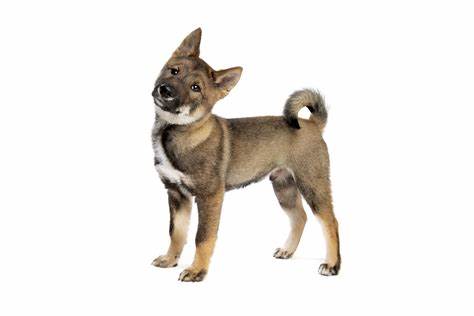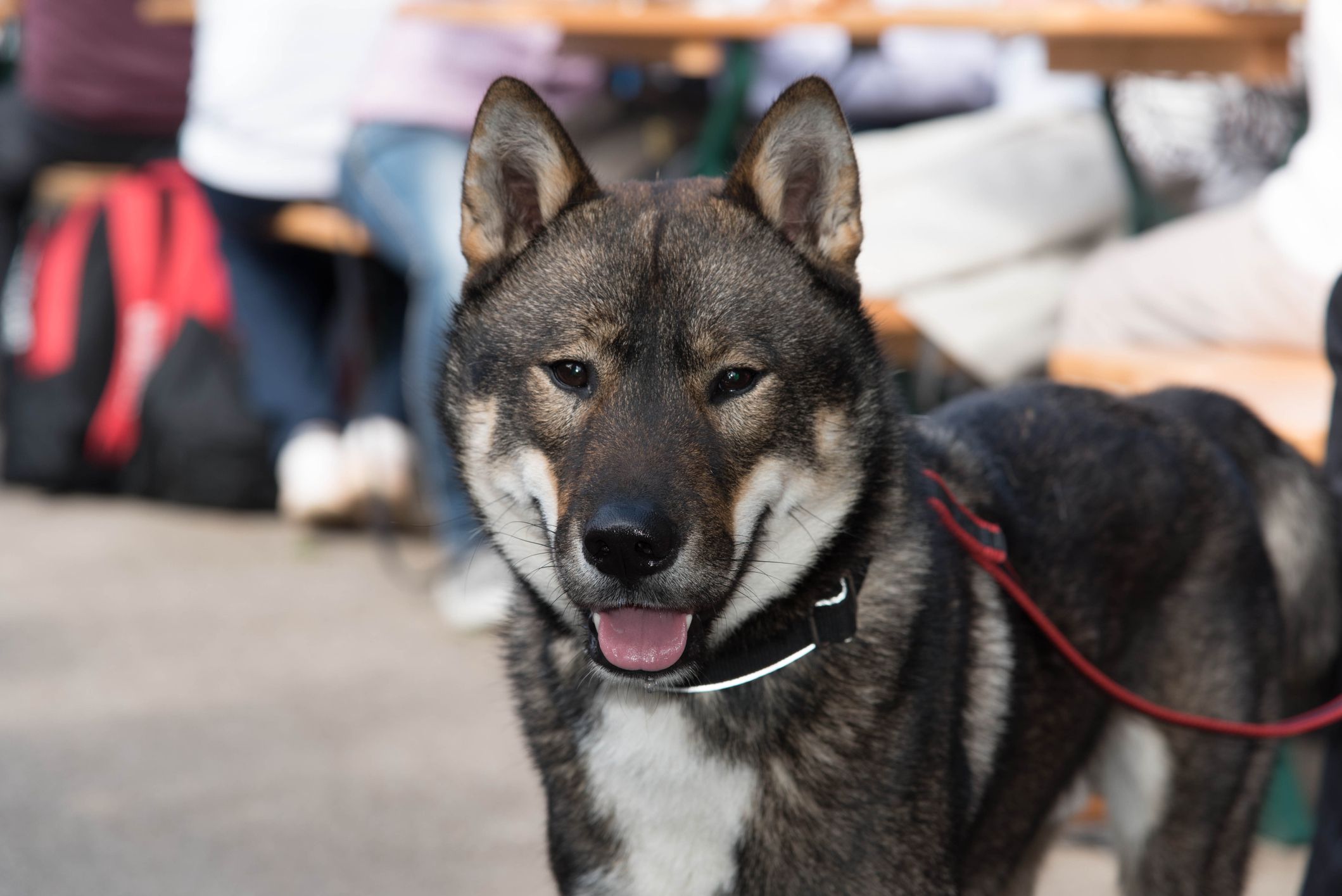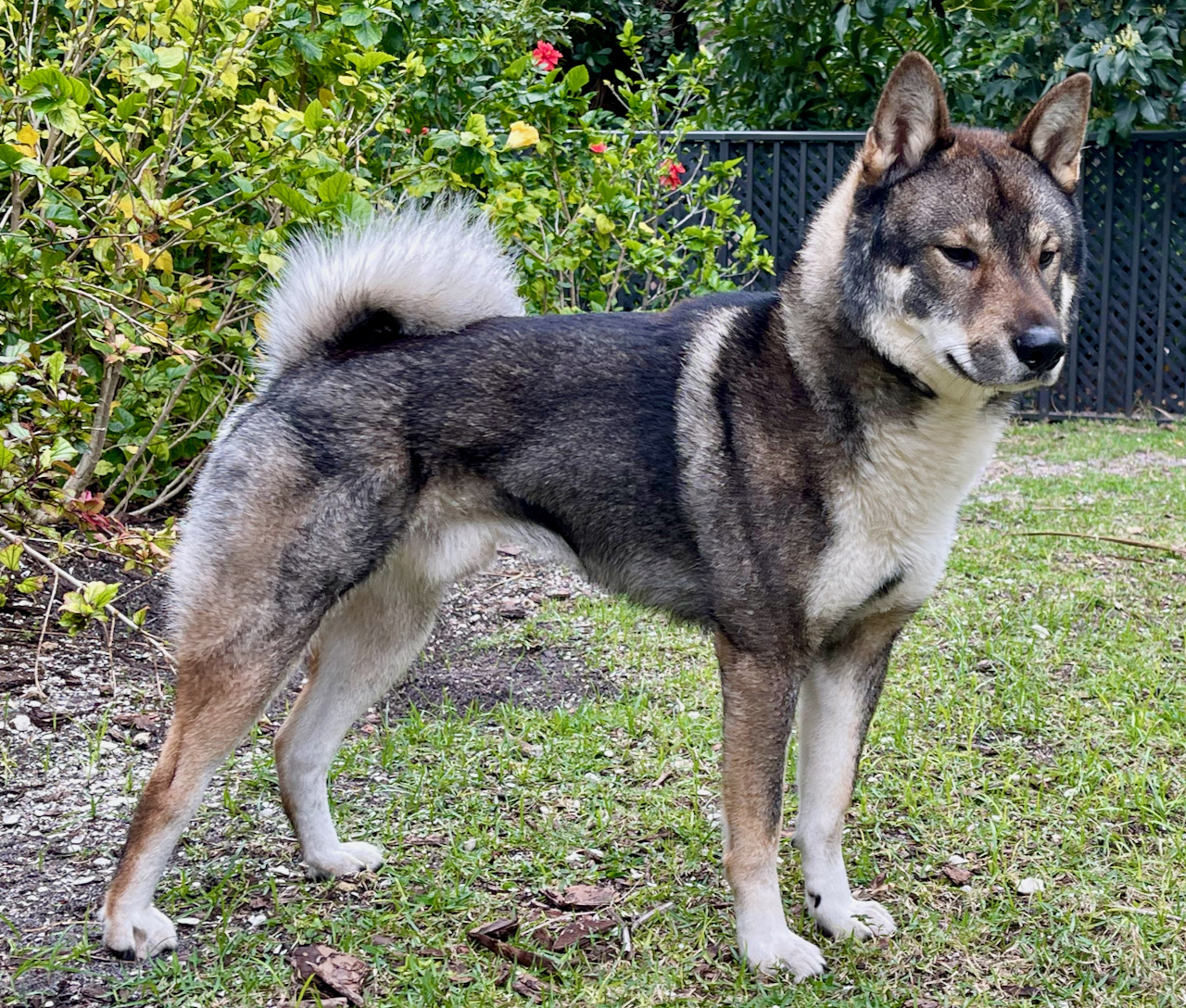Shikoku: Noble and Spirited Hunter from Japan

History of the Shikoku
The Shikoku is a rare and ancient Japanese breed, developed as a hunting dog in the mountainous regions of Shikoku Island. Sometimes called the Kochi-ken (Kochi dog), this breed was used to hunt wild boar and deer, relying on its agility, bravery, and endurance to navigate rugged terrain.
Shikokus are part of Japan’s spitz family, sharing ancestry with the Akita Inu and Shiba Inu. They were designated a national natural monument by Japan in 1937, recognizing their cultural and historical significance.
Popularity of the Shikoku
While beloved in Japan, the Shikoku remains rare outside its homeland. Even within Japan, it is less common than its more famous cousin, the Shiba Inu. However, breed enthusiasts worldwide have developed a strong appreciation for the Shikoku’s intelligence, loyalty, and natural athleticism.
Its rarity, combined with its loyalty and spirit, make the Shikoku a hidden gem among knowledgeable dog lovers.
Physical Traits of the Shikoku
The Shikoku is a medium-sized, wolf-like spitz with a well-balanced, athletic build.
• Height: 17–22 inches (43–55 cm)
• Weight: 35–55 pounds (16–25 kg)
• Build: Compact, muscular, and agile
• Coat: Double coat; harsh, straight outer coat with a soft, dense undercoat
• Color: Sesame (red, black, or white hairs mixed with black-tipped hairs), black and tan, or red
• Head: Broad forehead with a tapered muzzle
• Eyes: Dark brown, almond-shaped, and alert
• Ears: Small, triangular, and erect
• Tail: Thick and curled over the back or carried in a sickle shape
Their wild appearance and sharp expression perfectly reflect their origins as rugged hunters.
Behavioral Traits of the Shikoku
Shikokus are spirited, reserved, and highly loyal, with traits reminiscent of their wild ancestors.
• Affectionate: Deeply devoted to their family; bonds strongly with chosen people.
• Independent: Thinks for itself; can be reserved and cautious.
• Energetic: Needs daily exercise and mental challenges to stay happy.
• Alert: Naturally watchful and protective without being aggressive.
• Intelligent: Quick learners but require an owner who can provide firm, respectful leadership.
Their loyalty and natural dignity make them extremely rewarding companions for experienced owners.

Why Choose a Shikoku?
The Shikoku is ideal for:
• Active owners who enjoy hiking, running, and outdoor activities
• Individuals seeking a loyal, intelligent companion with a protective instinct
• People interested in rare and historically significant breeds
• Homes with secure fencing and space to explore safely
However, it may not be ideal for:
• First-time dog owners unfamiliar with independent breeds
• Families expecting a highly social, eager-to-please dog
• People unable to meet the breed’s exercise and mental stimulation needs
Caring for Your Shikoku
Shikokus thrive in homes that provide structure, activity, and understanding of their independent nature.
• Exercise: High; requires vigorous daily activity like running, hiking, and interactive play.
• Training: Needs early socialization and consistent, positive reinforcement; firm but gentle leadership is crucial.
• Grooming: Moderate; weekly brushing, with heavier grooming needed during seasonal shedding.
• Living Environment: Best suited to homes with secure yards; adaptable to rural or suburban living.
• Feeding: Balanced diet appropriate for active medium-sized breeds.
Ongoing training and socialization are key to a well-adjusted Shikoku.
Health Considerations
The Shikoku is generally a healthy, robust breed but can be prone to:
• Hip dysplasia
• Patellar luxation
• Allergies
• Eye issues (rare but possible)
Their typical lifespan ranges from 10 to 13 years, with good care extending both life and quality.

Comparisons to Similar Breeds
• Shiba Inu: Smaller and more popular; both share independence but the Shikoku tends to be more reserved and physically robust.
• Akita Inu: Much larger and more powerful; both are loyal and dignified but Akitas require even firmer handling.
• Kishu Ken: Close cousin; Kishus are more aloof and less vocal compared to Shikokus.
Is the Shikoku Right for You?
If you seek a loyal, energetic, and noble companion who will bond deeply with you and stand by your side with fierce devotion, the Shikoku could be an excellent choice. They are best suited for experienced owners who can offer them the physical activity, structure, and respect they need.
Prospective owners must be ready for a dog that values trust and consistency above all else.
Getting a Shikoku
Because the Shikoku is rare outside Japan, finding a reputable breeder may require patience and diligence. Health testing and responsible breeding are crucial for maintaining the breed’s integrity.
United Pet Club provides microchip registration, health monitoring resources, and training support to help new Shikoku owners succeed.
